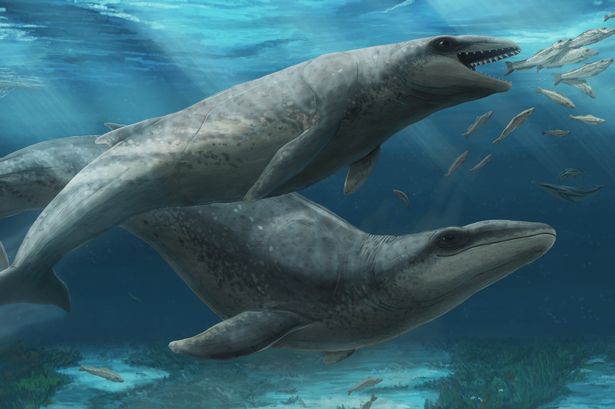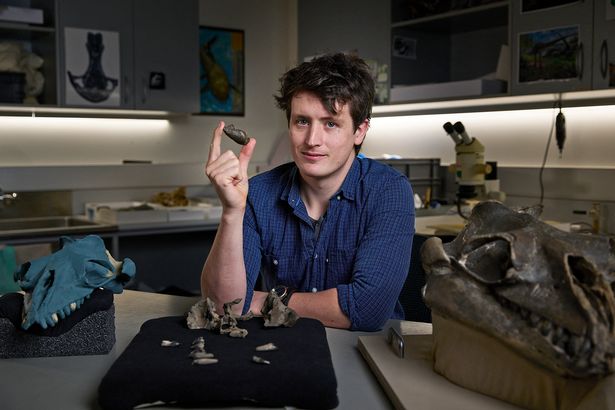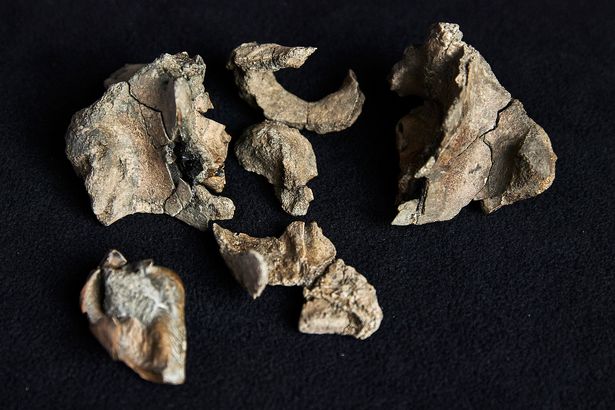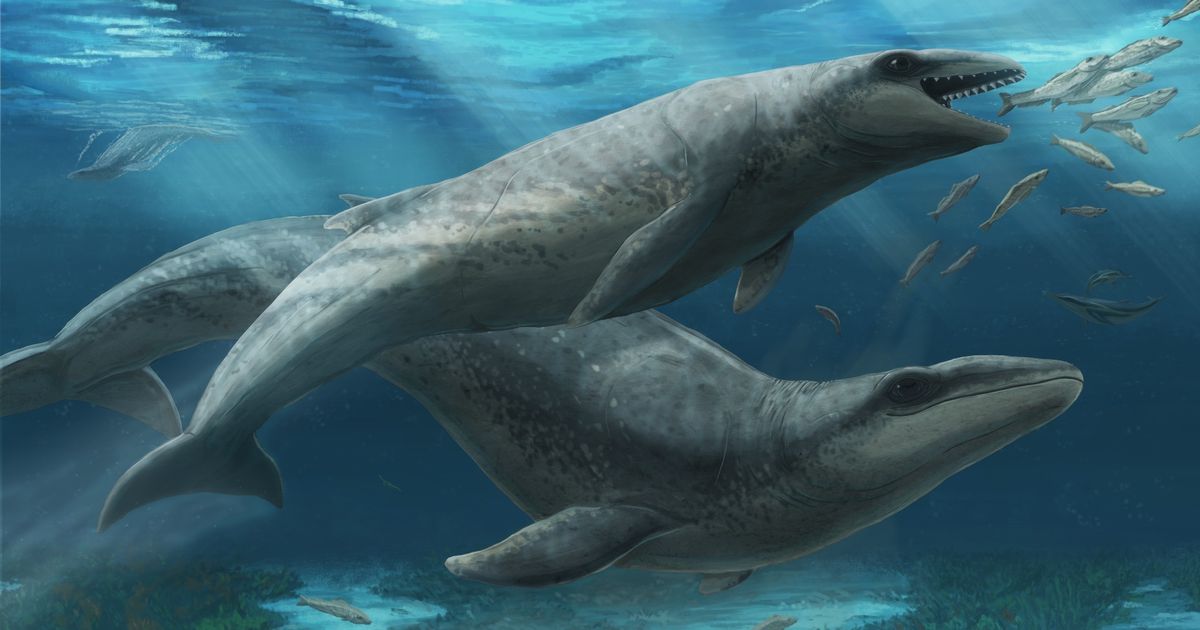The ancient ‘baby whale’ was the size of a dolphin with eyes the size of tennis balls and lived around 30million years ago. Scientists have discovered a new species of ancient whale(Image: Museums Victoria)
Scientists have discovered a new species of ancient whale(Image: Museums Victoria)
Scientists in Australia have discovered a new species of ancient whale that they are deeming “deceptively cute” due to its huge tennis ball-sized eyes and razor-sharp teeth.
The Janjucetus dullardi is nothing like the sea giants we know today, but is one of their earliest-known cousins, living around 30 million years ago.
The discovery was made by scientists at Museums Victoria’s Research Institute, who examined an ancient 26-million-year-old fossil found on Wadawurrung Country, along Victoria’s Surf Coast.
The small and ancient creature gives new insight on the early evolution of the baleen whales found in our oceans today. Janjucetus dullardi was a fast, sharp-toothed predator about the size of a dolphin, leading researchers to describe it as a ‘baby whale’.
With a short snout, large forward-facing eyes and slicing teeth, the prehistoric creature would have been fearsome in the warm, shallow seas of ancient Victoria.
Ruairidh Duncan, PhD student at the Museums Victoria Research Institute and Monash University, and lead author of the study said: “It’s essentially a little whale with big eyes and a mouth full of sharp, slicing teeth.
 Ruairidh Duncan led the study into the ancient ‘baby whale'(Image: TOM BREAKWELL/MUSEUMS VICTORIA/AFP via Getty Images)
Ruairidh Duncan led the study into the ancient ‘baby whale'(Image: TOM BREAKWELL/MUSEUMS VICTORIA/AFP via Getty Images)
“Imagine the shark-like version of a baleen whale – small and deceptively cute, but definitely not harmless.”
The fossil examined by the Australian researchers was a partial skull with ear bones and teeth, and was discovered in June 2019 by local resident Ross Dullard as he walked along the beach.
Recognising its scientific potential, Dullard donated it to Museums Victoria, who have named the new species after him.
“This kind of public discovery and its reporting to the museum is vital,” said Dr Erich Fitzgerald, senior curator of vertebrate palaeontology at Museums Victoria Research Institute and senior author of the study.
 The discovery was made after scientists examined a fossil from 26 million years ago(Image: TOM BREAKWELL/MUSEUMS VICTORIA/AFP via Getty Images)
The discovery was made after scientists examined a fossil from 26 million years ago(Image: TOM BREAKWELL/MUSEUMS VICTORIA/AFP via Getty Images)
The scientist added: “Ross’ discovery has unlocked an entire chapter of whale evolution we’ve never seen before. It’s a reminder that world-changing fossils can be found in your own backyard.”
The research has been published in the prestigious Zoological Journal of the Linnean Society, and it identifies Janjucetus dullardi as a juvenile whale measuring just over two metres long.
Despite its small size, it belonged to a group known as mammalodontids, early whales that lived only during the Oligocene Epoch- around 30 to 23 million years ago.
According to Fitzgerald, this region of Australia was once a cradle for some of the most unusual whales in history, and their stories are only just beginning to be discovered.
And due to the whale’s hot prehistoric habitat, scientists may also be able to analyse how ancient whales adapted to warmer oceans millions of years ago.
By examining how sea creatures evolved to previously warming oceans, scientists may also discover valuable clues about how today’s marine life might respond to climate change, as modern day sea levels rise and waters continue to grow hotter.
 Join the Daily Record WhatsApp community!
Join the Daily Record WhatsApp community!
Get the latest news sent straight to your messages by joining our WhatsApp community today.
You’ll receive daily updates on breaking news as well as the top headlines across Scotland.
No one will be able to see who is signed up and no one can send messages except the Daily Record team.
All you have to do is click here if you’re on mobile, select ‘Join Community’ and you’re in!
If you’re on a desktop, simply scan the QR code above with your phone and click ‘Join Community’.
We also treat our community members to special offers, promotions, and adverts from us and our partners. If you don’t like our community, you can check out any time you like.
To leave our community click on the name at the top of your screen and choose ‘exit group’.
If you’re curious, you can read our Privacy Notice.

